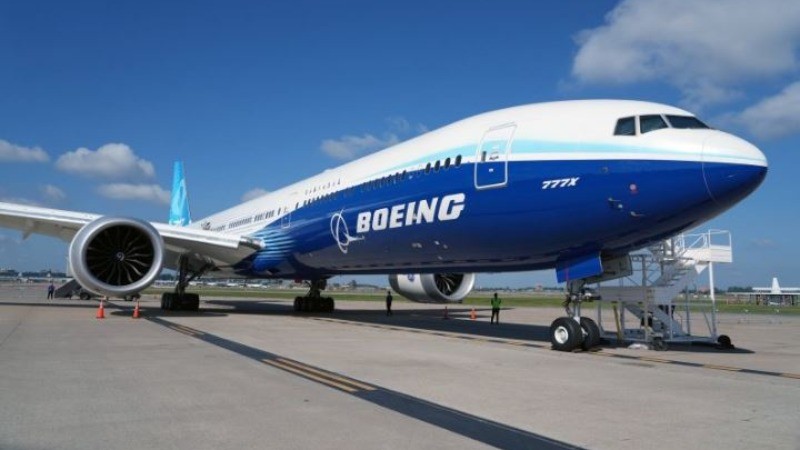
Boeing has announced plans to cut 17,000 jobs, about 10% of its global workforce, and delay the first deliveries of its 777X jet by a year, as the company grapples with financial difficulties caused by a month-long strike. The U.S. planemaker reported a $5 billion loss in the third quarter.
CEO Kelly Ortberg, in a message to employees, explained that the workforce reduction is necessary to align with the company’s financial situation. "We reset our workforce levels to align with our financial reality and to a more focused set of priorities. Over the coming months, we are planning to reduce the size of our total workforce by roughly 10 percent. These reductions will include executives, managers, and employees," said Ortberg.
As a result of these changes, Boeing shares dropped by 1.1% in after-market trading.
Ortberg took charge of Boeing in August, with a commitment to improving relations with the union and employees. However, the ongoing strike by 33,000 West Coast workers has significantly impacted production, halting the assembly of Boeing’s 737 MAX, 767, and 777 jets.
In addition to the job cuts, Boeing has recorded $5 billion in pre-tax earnings charges for its defense business and two commercial airplane programs. The company recently replaced the head of its space and defense division and is now working on stabilizing its operations.
Boeing, which is expected to report its third-quarter earnings on October 23, now anticipates a revenue of $17.8 billion, a loss per share of $9.97, and a negative operating cash flow of $1.3 billion—better than analysts’ predictions of a $3.8 billion cash burn.
Thomas Hayes, equity manager at Great Hill Capital, said that the layoffs might put pressure on striking workers to return. “Striking workers who temporarily do not have a paycheck do not want to become unemployed workers who permanently do not have a paycheck,” Hayes said, predicting that the strike could be resolved within a week.
Ending the strike is critical for Boeing, which recently filed a complaint accusing the machinists' union of not negotiating in good faith. It is estimated that the strike is costing Boeing $1 billion per month, and the company risks losing its investment-grade credit rating.
Boeing also informed its customers that it expects the first delivery of its 777X jet in 2026, citing development challenges and delays due to the strike. The 777X has already faced certification issues that significantly pushed back its launch.
Ortberg emphasized that while the company faces immediate challenges, it is making strategic decisions to secure its future. Boeing also announced plans to end its 767 freighter program in 2027 but confirmed that production of the KC-46A Tanker will continue.
In response to the job cuts, the company is discontinuing its furlough program for salaried employees, which was introduced in September.
Even before the strike, Boeing was struggling financially due to a January incident involving a mid-air panel blowout, which raised safety concerns and led to production restrictions from U.S. regulators.
In addition to these challenges, Boeing is currently facing a court hearing in Texas over a plea deal with the Justice Department, in which it has agreed to pay a $487.2 million fine and spend $455 million on safety improvements.
Boeing is also exploring options to raise billions through stock sales and other equity-related securities, potentially raising around $10 billion to manage its $60 billion debt and stabilize its operations.